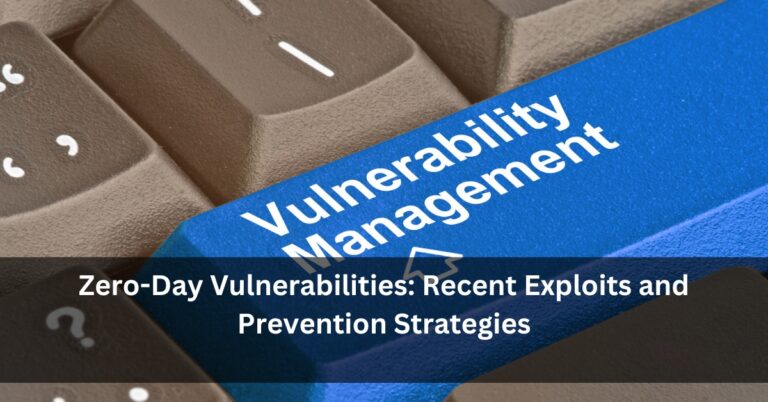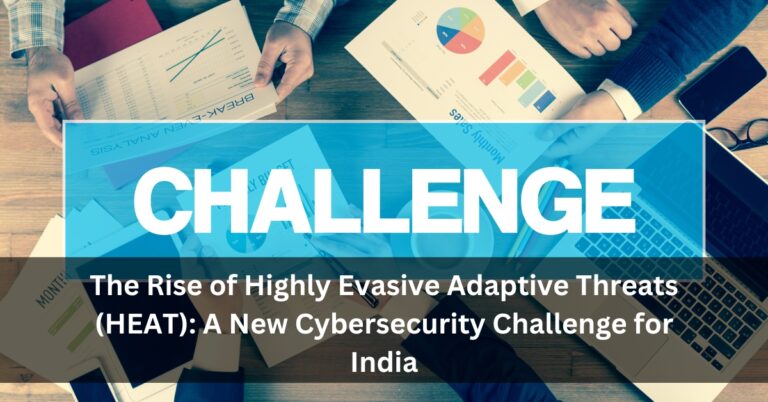Cybersecurity Challenges in the BFSI Sector Amid Quantum Threats
India’s BFSI (Banking, Financial Services, and Insurance) sector is going digital faster than ever. From net banking and UPI to insurance apps and digital wallets, everything is moving online. This shift has brought convenience, but it also brings risk. One of the biggest upcoming risks is quantum computing – a powerful technology that could break the encryption we rely on today.
What Is Quantum Computing?
Quantum computing is not just a faster version of your regular computer. It works on quantum bits or “qubits” that can be in multiple states at once. This makes quantum computers exceptionally powerful at solving complex problems – including cracking codes that protect our online data.
Today’s cybersecurity systems rely on encryption methods like RSA and ECC. These systems use very large numbers and mathematical complexity to protect data. However, once quantum computing matures, it could solve these mathematical puzzles quickly, putting encrypted information at risk.
This could be especially dangerous for the BFSI sector, where sensitive customer data, financial transactions, and national economic records are stored digitally.
Learn more about how AI and cybersecurity intersect at FutureAI.
Why Is the BFSI Sector in India Vulnerable?
India’s BFSI sector is a frequent target for cyberattacks. According to recent reports, it’s one of the most attacked sectors in Asia. Banks, insurance firms, and fintech startups are attractive targets because of the valuable data they hold.
Unfortunately, a study by the ISB Institute of Data Science shows that many Indian financial institutions are not ready for quantum threats. Most Chief Information Security Officers (CISOs) and technology heads in the sector scored poorly on readiness for post-quantum cryptography (PQC). This means there is still a long way to go in preparing for the quantum future.
The situation is more worrying when you consider that most cybersecurity efforts are still focused on present-day problems like phishing scams, malware, and ransomware. While these are serious threats, ignoring future challenges like quantum computing could prove costly.
If your business is in BFSI and wants to stay ahead, visit FutureAI for expert insights on how AI can help.
What Is the “Harvest Now, Decrypt Later” Risk?
One of the sneakiest dangers of quantum computing is what experts call “Harvest Now, Decrypt Later.” In simple terms, hackers may be collecting encrypted data right now, even though they can’t read it yet. They’re waiting for the day quantum computers are strong enough to break the encryption and reveal all that data.
This could include:
- Bank transaction history
- Aadhaar and PAN details
- Loan records
- Health insurance claims
This means that the data you think is safe today might not be safe in a few years.
How Can the BFSI Sector Prepare?
The good news is that preparation is possible. While quantum computers are not yet widely available, the race has already begun to create encryption methods that can resist quantum attacks.
Here are key steps financial institutions can take:
1. Shift to Post-Quantum Cryptography (PQC)
PQC algorithms are designed to be secure even against quantum computers. Migrating to these new encryption standards should start now. Several global organisations, including NIST (National Institute of Standards and Technology), are already working on standardizing PQC.
2. Start Risk Assessment and Planning
Banks and insurers need to evaluate where quantum threats could hurt them most. This includes identifying critical systems, data storage points, and encryption mechanisms.
3. Raise Awareness Internally
Employee awareness and training should not be limited to phishing and password hygiene. Leaders must start educating their teams about the impact of quantum threats and the steps being taken to prepare.
4. Collaborate With Experts
Quantum readiness is a complex challenge. Institutions should work with cybersecurity experts and technology partners. Collaborations with organisations like FutureAI can provide tailored solutions and AI-powered monitoring systems.
5. Support Government and Industry Initiatives
The Indian government has already launched the National Quantum Mission. Financial companies must support these efforts and align their cybersecurity policies accordingly.
To stay updated on AI, data security, and digital transformation, follow FutureAI.
Role of AI in Cybersecurity
Artificial Intelligence (AI) can play a big role in defending against quantum-related threats. AI can help in detecting abnormal network activity, automating response systems, and even predicting where future attacks might come from.
Organisations like FutureAI are already integrating AI with cybersecurity tools to protect sensitive digital assets in real time. AI makes it easier to stay one step ahead of cybercriminals, including those preparing for the quantum future.
Final Thoughts
Quantum computing is not science fiction anymore. While it offers benefits in sectors like medicine and logistics, it also poses serious cybersecurity risks. For India’s BFSI sector, the time to act is now. Waiting for quantum computers to become mainstream before preparing would be a costly mistake.
Adopting post-quantum encryption, training teams, investing in AI-powered protection, and collaborating with leaders like FutureAI are some of the essential steps towards securing our financial future.
Cybersecurity is no longer just about protecting what we have now — it’s about protecting what we may not even see coming.







